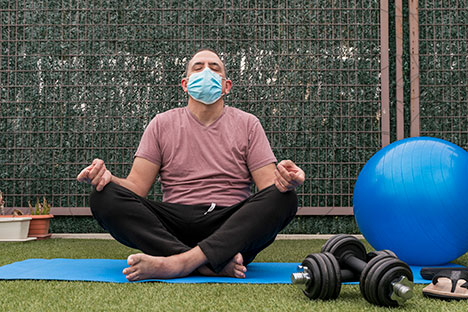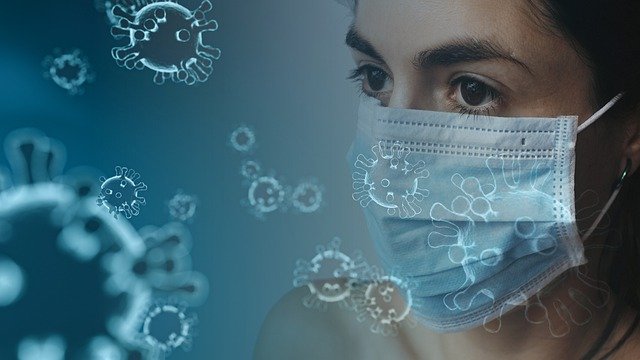Last updated on April 28th, 2023 at 04:13 pm

With thousands of deaths across the world, the ongoing Covid-19 pandemic is causing huge levels of anxiety and fear. Although many of the people who contract the virus suffer mild symptoms and will not require hospital treatment, some groups are more vulnerable to more severe symptoms.
The elderly and people with underlying health conditions, particularly cardiovascular disease, diabetes and chronic obstructive pulmonary disease are at an increased risk of more serious outcomes.
As these underlying conditions are often present in people who suffer with sleep apnoea, it may place them at an increased risk, too. Maintaining treatment plans for sleep apnoea such as CPAP will help you continue to get good nights of sleep, helping to strengthen the immune system.
Be Aware of the Symptoms
Two of the more common symptoms of covid-19 are a fever and a dry cough, while others also experience diarrhoea. However, in the first few days of the illness there are some red flag symptoms which could indicate the virus is going to be harder to combat. These include:
- Shortness of breath or difficulty breathing
- Abdominal pain
- A significant headache
- Severe fatigue
- Trouble eating and drinking
Anyone experiencing red flag symptoms should phone their doctor for medical advice. Try to avoid physically attending a doctor’s practice to prevent spreading the virus. Your doctor should be able to advise you remotely on what to do next and whether you need evaluating with a view for admission to a medical facility.
The Danger of Returning Symptoms
One of the peculiarities of this strain of virus is people have started to feel better — only to get hit again even harder 5 to 7 days in to the illness. This requires anyone with symptoms to remain vigilant as the downturn can prove to be rapid.
Therefore, if symptoms such as a high fever or shortness of breath return, seek medical assistance immediately.
Looking After Yourself At Home
Most people who contract the virus will not need hospitalisation and will be able to care for their illness at home. In this situation, there are a number of things you can do to help prevent the spread of the virus, particularly to other people in the household.
Primarily if you are showing symptoms of the virus, you should quarantine yourself within your home. This means sleeping in a separate room, avoiding using common rooms and refraining from leaving the house.
Other ways to help prevent the spread of the virus, even if you are not displaying any symptoms, include:
- Wear a face mask or scarf.
- Wash hands regularly with soap and water for at least 20 seconds each time.
- Use a hand sanitizer containing at least 60% alcohol.
- Avoid touching your eyes, nose and mouth.
- Cough and sneeze in to a tissue or use the inside of your elbow. Discard all used tissues.
- Keep at least 6 feet away from other people.
If You Become Ill
For those who are ill but do not require hospital treatment, as well as quarantining yourself and wearing a face mask you can take acetaminophen (Tylenol), but avoid ibuprofen if you believe you may have covid-19.
A cold compress can be used for the fever and make sure you keep hydrated, eat healthily and get good rest. Sleeping on your stomach may help as it can keep the lungs open.
For those diagnosed with sleep apnoea and using CPAP as part of their treatment, this is a time to be extra vigilant on cleaning and maintaining your device equipment and keeping it clear of infection. Sleep remains an important restorative tool for the body and your CPAP device can continue to help you get better nights of leep.


